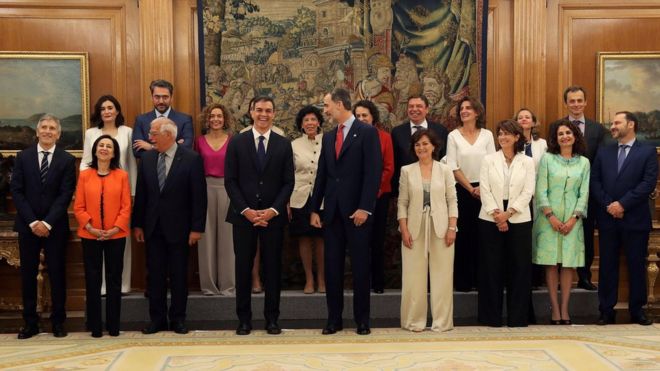
In the wake stunning political developments in Italy and Spain last week, Jan-Werner Müller, writing for the New York Review Daily, asks if European populism might be rescuing liberal democracy rather than destroying it, as is widely feared. In Italy, the right-wing League and the populist Five Star Movement (FSM) formed an unlikely government. Around the same time, a socialist government abruptly came to power in Spain after its parliament issued a no-confidence vote against the conservative prime minister Mariano Rajoy. Müller writes that while the rise of right-wing populism in Europe is a deeply troubling development, left-wing populism—as represented by Podemos in Spain and Syriza in Greece—has managed to significantly alter the mainstream political agenda, putting austerity front and center. In this way, suggests Müller, left-wing populism in Europe may actually be restoring relevance and legitimacy to liberal democracy. Here’s an excerpt from the piece:
But Podemos’s own standards for success are not the only available measures. What Podemos and the FSM, as well as the left-wing Syriza party in Greece, have achieved is that the main conflict in today’s southern Europe—essentially austerity versus anti-austerity—can be represented inside the political system. That’s not much, radical critics might say. But when compared to the impression, held especially by young southerners, that the party system consisted of two main political blocs alternating in power, with little discernible policy difference in practice, and much in the way of corruption on both sides, this development seems important. Podemos and the FSM managed to get well-educated young people who were either unemployed or stuck in jobs for which they were completely overqualified back to the voting booths. It was not a given that young people whose opportunities in life have been heavily damaged by the crisis of the eurozone would first protest in public squares, then vote for new parties—and then, after those parties had failed to gain majorities, resolve to try again. Back in the 1970s, for instance, young people in Italy had very different ideas—as the terrorist violence of the Red Brigades, and their fascist opponents, demonstrated. Contrary to conventional wisdom, new formations like Podemos and Syriza are not necessarily a sign of a crisis of democratic representation, but proof that party systems can adapt.
True, this can seem an overly rosy picture: after all, Syriza has been governing for more than three years and has not managed to end austerity policies (though, of course, it tried, in a series of dramatic confrontations with the EU and powerful northern states in the spring and summer of 2015). This demonstrates that a renewal of national democracies ultimately has to be complemented with a new architecture for the EU, so that a crisis of representation is not simply reproduced at the European level. If citizens feel that they have genuine choices—for instance, in elections to the European Parliament—they are more likely to accept being on the losing side of a conflict. It is precisely because it is so difficult to express opposition within the EU that dissent so often becomes opposition to the EU as such.
Image: The female-majority cabinet of Spain’s new Socialist government. Via BBC.